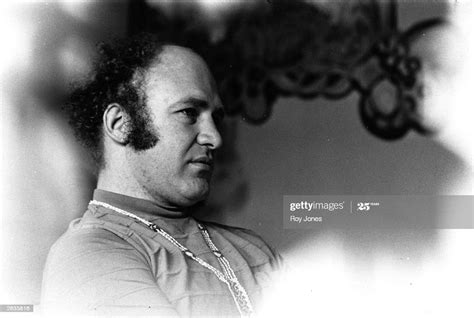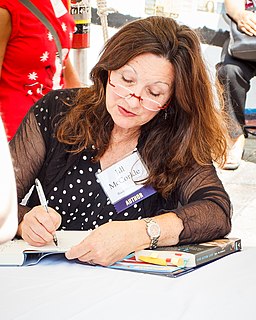A Quote by Stephen King
I believe the first draft of a book — even a long one — should take no more than three months…Any longer and — for me, at least — the story begins to take on an odd foreign feel, like a dispatch from the Romanian Department of Public Affairs, or something broadcast on high-band shortwave duiring a period of severe sunspot activity.
Related Quotes
Before I begin a novel I have a strong sense of at least one central character and how the story begins, and a more vague sense of where things may wind up, but at some point, if the novel is any good at all, the story and characters take on lives of their own and take over the book, and the writer has to be open to that.
It's true that in Romanian I feel more relaxed, as if I'm wearing slippers...but I came to this decision primarily for other reasons: I had only published three collections of texts in Romania. Even before my exile I was prohibited from publishing, I was ignored and forgotten. In going back to Romanian I had the opportunity to take my revenge.
We can tell the general public that the gold and foreign currency reserves of the Central Bank are not designed to finance the economy, but rather to ensure foreign trade turnover. Therefore, we need this level to be able to provide the necessary foreign trade turnover for such an economy as Russia's for a period of at least three months.
It can take years. With the first draft, I just write everything. With the second draft, it becomes so depressing for me, because I realize that I was fooled into thinking I'd written the story. I hadn't-I had just typed for a long time. So then I have to carve out a story from the 25 or so pages. It's in there somewhere-but I have to find it. I'll then write a third, fourth, and fifth draft, and so on.
If you take a book with you on a journey," Mo had said when he put the first one in her box, "an odd thing happens: The book begins collecting your memories. And forever after you have only to open that book to be back where you first read it. It will all come into your mind with the very first words: the sights you saw in that place, what it smelled like, the ice cream you ate while you were reading it... yes, books are like flypaper—memories cling to the printed page better than anything else.
Almost all good writing begins with terrible first efforts. You need to start somewhere. Start by getting something-anything-down on paper. A friend of mine says that the first draft is the down draft-you just get it down. The second draft is the up draft-you fix it up. You try to say what you have to say more accurately. And the third draft is the dental draft, where you check every tooth, to see if it's loose or cramped or decayed, or even, God help us, healthy.
...the more risks you allow children to take, the better they learn to take care of themselves. If you never let them take any risks, then I believe they become very prone to injury. Boys should be allowed to climb tall trees and walk along the tops of high walls and dive into the sea from high rocks... The same with girls. I like the type of child who takes risks. Better by far than the one who never does so.
The habits of a lifetime when everything else had to come before writing are not easily broken, even when circumstances now often make it possible for writing to be first; habits of years - responses to others, distractibility, responsibility for daily matters - stay with you, mark you, become you. The cost of discontinuity (that pattern still imposed on women) is such a weight of things unsaid, an accumulation of material so great, that everything starts up something else in me; what should take weeks take me sometimes months to write; what should take months, takes years.
Secrecy fuels erotic intensity because it makes you feel like you're doing something that is entirely yours. It gives you the sense of autonomy, the sense of freedom, and the sense of sovereignty. And then you add to that the sexual energy. In many affairs, people will tell you they slept with the person three or four times, but the story went on for months. That's an important thing because many people who have affairs often have very good sexual relationships at home. It's not necessarily a compensation story. But affairs offer a different sexuality with a different context.
I feel very protective in the first draft, when all the pieces are coming together. I work in a way that is not linear or chronological at all, even with the short story. I will just be writing bits and pieces, and then when I have all the pieces on the table, that for me is when it feels like the real work begins.


































